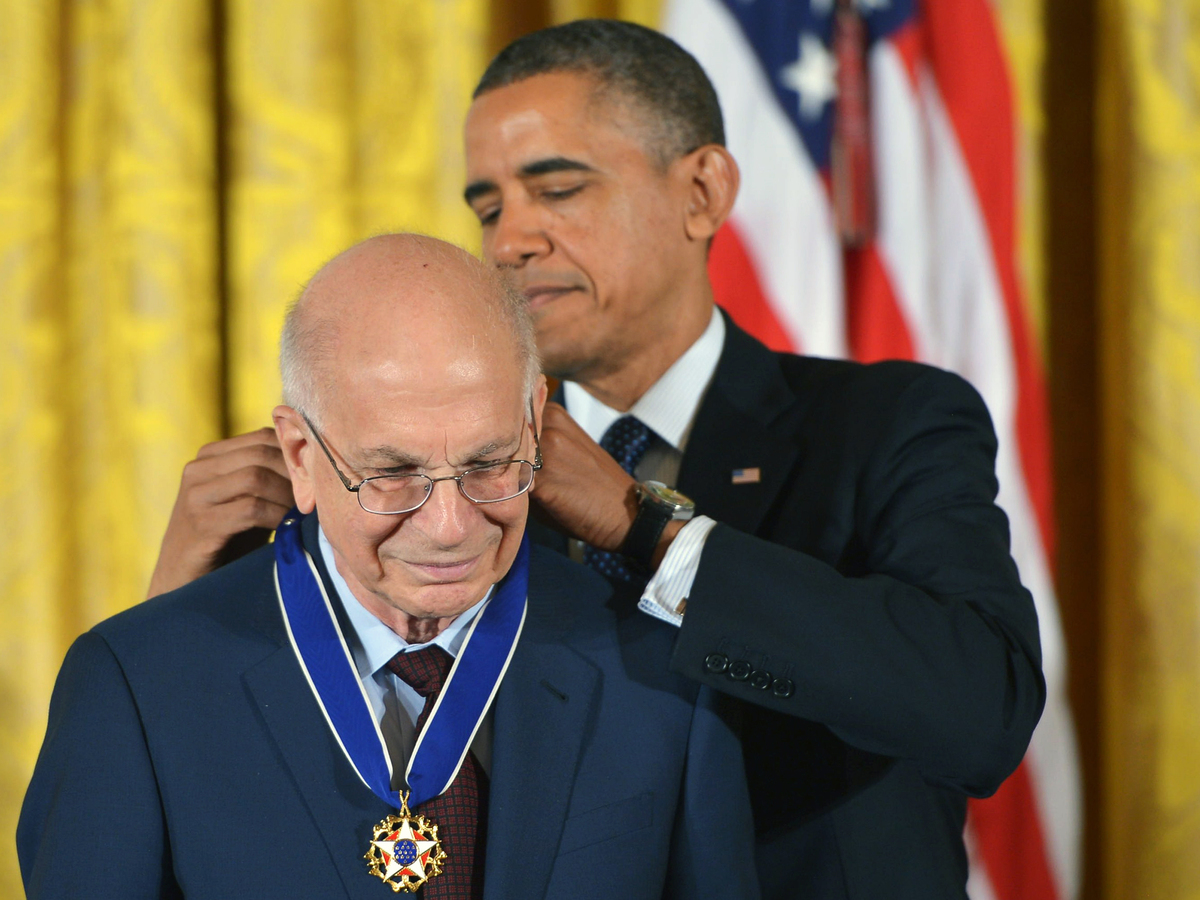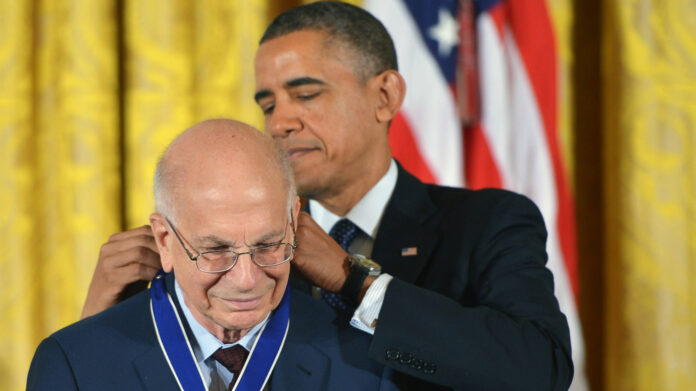
Daniel Kahneman, who obtained the Presidential Medal of Freedom in 2013, has died. He merged psychology and economics to assist launch the rising area of “behavioral economics.” Mandel Ngan/AFP through Getty Pictures disguise caption
toggle caption
Mandel Ngan/AFP through Getty Pictures

Daniel Kahneman, who obtained the Presidential Medal of Freedom in 2013, has died. He merged psychology and economics to assist launch the rising area of “behavioral economics.”
Mandel Ngan/AFP through Getty Pictures
Daniel Kahneman, who understood that not all financial decision-making is strictly rational, has died on the age of 90. His analysis, which targeted on the methods human psychology can warp rational pondering, was acknowledged with a Nobel Prize in 2002 and helped give rise to the burgeoning area generally known as “behavioral economics.”
“Danny was a large within the area,” stated Eldar Shafir, a professor at Princeton the place a analysis middle is called for Kahneman. “Many areas within the social sciences merely haven’t been the identical since he arrived on the scene.”
Kahneman, who additionally obtained the Presidential Medal of Freedom in 2013, credited a lot of his success to success.
“My life was remodeled by sheer luck,” Kahneman informed NPR’s Hidden Mind in 2018. “Discovering a associate, an mental associate, with whom we acquired alongside very effectively and we acquired loads completed.”
Kahneman’s longtime collaborator was Amos Tversky, who died in 1996. They have been each skilled as psychologists, and collectively they challenged the tutorial orthodoxy that folks’s financial habits is strictly guided by rational thought. They recognized many examples the place choices are formed in methods which might be irrational, however comprehensible — corresponding to judges who grant parole extra typically after lunch than once they’re hungry.
One other Nobel laureate, Richard Thaler, says Kahneman and Tversky broadened our understanding by asking a distinct query than most economists, who have been steeped in arithmetic, not psychology. Moderately than asking what’s the most effective or most effective technique to do one thing, and assuming that is what individuals do, they requested how individuals actually behave.
Kahneman summarized these findings in his bestselling 2011 ebook, Considering, Quick and Sluggish.
Some choices are made slowly and intentionally, he wrote, in a lot the way in which that customary financial fashions describe. However others are swayed by snap judgments or short-cuts, which fall into predictable patterns. A gambler or an investor, for instance, would possibly take extra dangers after shedding cash in hopes of breaking even.
Typically, psychology tells us, the framing of an financial selection makes a giant distinction. Many shoppers welcome the concept of a restaurant low cost on sure nights of the week, however recoil on the notion of paying a surcharge at different instances, as Wendy’s just lately found, despite the fact that in strict financial phrases, there isn’t any distinction.
By accounting for these quirks, behavioral economics seeks to higher perceive individuals’s decision-making and, in some circumstances, nudge them in additional fascinating instructions.
“Clearly, the decision-making that we depend on in society is fallible,” Kahneman informed NPR’s All Issues Thought-about in 2011. “It is extremely fallible, and we should always know that.”
Kahneman had his personal psychological short-cuts, Thaler says, describing his good friend an “avid pessimist.”
“He all the time thought the worst would occur,” Thaler recollects. “He claimed this was rational as a result of he wouldn’t be disenchanted as a lot with the outcomes of life.”
Thaler, a self-described optimist, says he tried in useless to persuade Kahneman to spend much less time worrying.
“The truth that he lived to 90 in moderately good well being ought to have confirmed me proper, however I made no progress in altering his thoughts.”















